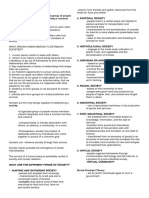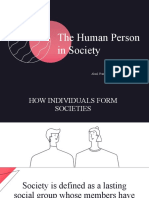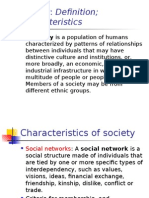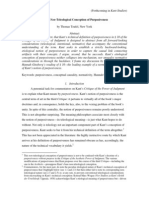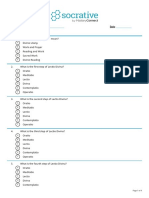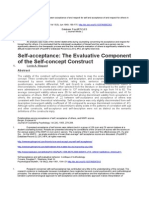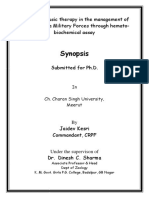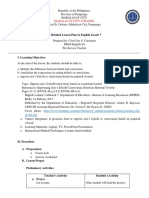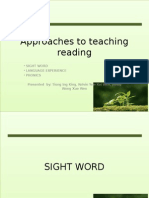T h e H u m an
s o
Per ironmentn
in th e E n v
�Table of contents
01 Forms of Society
02
The Influence of Society
in the development of
human person
03 Social Systems
�• Picture Analysis (Who I am?)
�Forms of Society
�PRE-INDUSTRIAL INDUSTRIAL POST-INDUSTRIAL
SOCIETY SOCIETY SOCIETY
�PRE-INDUSTRIAL SOCIETIES
�hunting and
gathering society
§ recognized as the earliest
and simplest form of society.
§ nomadic (no permanent
settlement) members are
generally treated equally, and
decisions are based on
consensus
� r a l s o c i e t y
pasto o m e s tic a ti o n o f th e
riz e d b y t h e d
§ ch a ra c t e a b le a n d
f o r a m o re s t
f o r fo o d
animals d s u p p ly .
d i c ta b le f o o
pre s u r plu s fo od
fte n p ro d u c e
ra l s o c ie tie s o
§ p ast o s.
and re so u rc e
c i a liz ed t as ks
g e n c e o f s p e
s to t he e m e r
§l e a d n it y.
in the c o m m u
�horticultural
society
§ primarily engages in the
small-scale cultivation of
plants, fruits, and vegetables
and the domestication of
animals.
§ semi-nomadic
§ the assignment of tasks and
occupations were often based
on gender.
� l t u r a l s o c i e t y
ag r i c u d lo n g - t e rm
la rg e - sc a le a n
§ involves the e s t ic a t io n of
r o ps a n d d o m
cultivation of c
animals.
t e c h n o lo g y a nd
ze d b y im p ro v e d
§ c h ar a cte r i
a id in le a rn in g .
of t o o ls t o
the use a n d a m ore
w i ng p o p u l a t io n
ve rise to a g ro
§ gi s ys t e m .
s o ci a l
structured
�feudal society
§ based on the ownership of
land
§ originated during medieval
age in western Europe.
§ members of society are
organized and based on
status.
§ social relations are
characterized by
dependence.
��INDUSTRIAL SOCIETY
� u s t r i a l s o c i e t y
in d in the
e c ia liz e d m a c h in e ry
t h e u s e o f s p
o based on s e rv i c e s .
o f g o o d s a n d
pr o d u c ti o n
l R e v o l u tio n ”
o “ In d u s tria d in
p e r io d r es ulte
v a n c e s in t h is
no lo g ic a l a d
o tech e a n d c o m m e rc e .
r a d
improved t to r ie s.
is d o n e in f a c
o wo rk o w er, a nd
s in w e a lt h , p
te r in e q u a lit ie
gr e a
o lead to
influence.
�POST-INDUSTRIAL SOCIETY
� u s t r i a l s o c i e t y
post -i n d ie ti e s
h m e n t o f s o c
y th e e s t a b l is
o ma rk e d b a n d s a le o f
, in fo r m a t io n ,
n k n o w le dg e
based o
s e rv ic e s .
n d u s t ry to th e
h if te d f r o m i
o trend ha s s s a le o f
ip ul a t io n , an d
sto ra g e , m a n
gener a tio n ,
info r m a t io n .
l s o c ie ty ”
o “virtua
�digital citizen
a “digital citizen” is a person who is
knowledgeable and responsible
enough to effectively use different
social platforms on the internet. They
often engage in useful topics and
issues that will help build a better
society, politics, and government.
� “How does society influence our
development as persons?”
the person and the society have a very dynamic
relationship in which one cannot exist without the
other.
society influences our development as persons in
various ways.
society influences the interactions of its members
through the establishment of norms - sets of traits and
behavior that society considers acceptable.
when members of society do not conform to
established norms, one can experience negative
consequences, such as punishment or social stigma.
� social systems
Social System- an organized or patterned set of
relationships among individuals and groups that compose a
society.
Laws- more formal and stringent norms that establish and
define acceptable behavior of citizens.
Folkways- are less formal norms that arise from tradition
and do not result in punishment when violated. (Eg: dress
code)
Social Role- are actions and behaviors expected of a certain
individual. (Eg: being a father, son, daughter, teacher, etc.)
� ·Social groups or Social classes- group of individuals who
share similar backgrounds or perform similar roles. (Eg: rich,
middle class, poor)
Social institutions- groups that perform vital functions in
society. (family, school, government, religion) Society also
transforms human relations, which leads to the
transformation of its members.
Social values are actions or ideals that are considered
important by society. (cooperation, obedience to the law,
concern for other, respect for others)
Generation Gap- conflict among people of different ages
when discussing certain topics.
�“How does society enable me to become a
better person?”
We have the freedom to rise above circumstances and
make ourselves into something different or better.
Society recognizes the capability of the person to
develop and provides its members with opportunities
to better themselves.
Persons can also undertake to contribute to society
through their decisions and actions.
Social movement- a large-scale action done by
various groups and organizations in pursuit of a
common goal to bring about change. (Environmental,
Youth, Gender, Clean Governance)

























